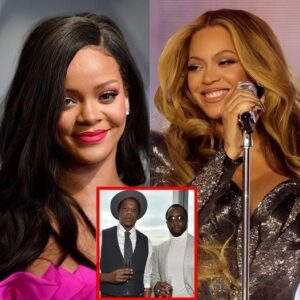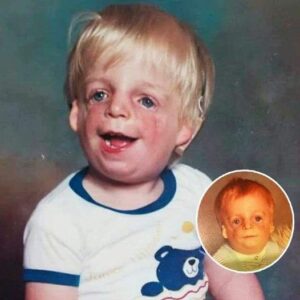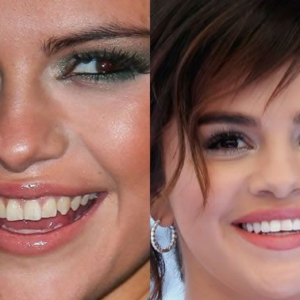It’s like a horrible joke. His parents abandoned him as an infant because of how he looked. However, Jono Lancaster has become a renowned speaker and activist. He encourages people all over the world to use positivity to fight through diseases and challenges.
He famously has Treacher Collins syndrome, which is a rare disorder that affects his facial structure and hearing abilities. He shared his story at the National Organization for Rare Disorders (NORD) Breakthrough Summit.
“I was born with a genetic condition that affects my facial features. I have no cheekbones, and so my eyes dip down.” But he added, “I love my little ears, they don’t get cold at night. But I do need hearing aids. I’m one of the lucky ones. More severely affected individuals need help with feeding and breathing. I met some kids who’ve had more than 70 surgeries to correct problems that would make their lives easier.” [1]
Jono Lancaster’s Childhood With Treacher Collins Syndrome
Lancaster explained how shocked his parents were after he was born. Social services came in to look after him and they called a potential foster carer named Jean. They told her there was a baby abandoned at the hospital and she was astounded.
“How could you not love a child?” she said. When she soon met Lancaster in person, she immediately said, “When can I take him home?”
Despite the harsh abandonment, Jean didn’t give up on trying to connect Jono with his birth parents.
However, the parents returned the pictures and letters reporting his progress unopened. “Jean adopted me on May 18, 1990 – so I get two birthdays!” he said.
“I used to tell other kids that my mom went to the hospital and she looked at all the babies and she chose me, whereas their parents had been stuck with them.”
×

In fact, when Jono was 25 he tried to contact his parents again. He understood that perhaps they didn’t feel confident raising him like they raised the two healthy children after him. However, they rejected him completely. [2]
The bullying started when Jono was around seven. The kids would run away, yelling about catching his disease, pulling their eyes downward.
The worst incident was on a bus. Jono had just had a surgery and Jean was taking him to a museum since it was their custom to go on a fun outing after a hospital appointment
. He noticed a lovey-dovey couple that made him smile. But then they turned around and began making fun of him.
Laughing At Him, Laughing With Him
After that, Jono began to isolate himself. “When I became a teen, I began to think, why me? That snowballed into thinking about my birth parents. Parents are supposed to love you no matter what, even if you rob a bank. How would I ever have a family? Who will want me?”
He felt desperate for people to like him, even acting out in class. Anything for someone to talk to him about something other than his looks.
“I started to hate my face. I became aggravated at not being able to change the way I looked”.
He continued, “I avoided looking at my reflection, even in windows walking down the street. I was ashamed of the way I looked.”
To make matters worse, one of his friends would bully him. He got Jono a job at the bar he worked at where everyone would make fun of his appearance. But then a strange encounter changed things.
One customer came in, who Jono described as a “skinhead” and “a guy on steroids with muscles on top of muscles.” Jono tried to avoid serving him but no one else stepped up. When Jono asked what he wanted to drink, the man said, “Before you get my drink, I have a question. What’s up with your face?”
People began to snicker and Jono quietly said, “I was born with Treacher Collins syndrome.” The man responded with “all right.” Then Jono added, “I’m deaf,” and showed him his hearing aids.
“Do they come with an off switch?” the man said. “Damn, you’re lucky. I have a wife and all she does is talk 24/7, and to be able to switch her yakking off…” And just like that, someone was laughing with Jono, not at him. From that moment, Jono began to “focus on the good.”
“Life is Good”
He started working out and met his partner Laura at a gym.
“Instead of avoiding mirrors, I put a smile on my face and began to thank that life is good.”
Soon after, he got media coverage, began motivational speaking, got a job helping adults with autism, and even did some modeling. He especially hopes to inspire kids who have the same syndrome as him. [3]
“So what’s changed?” he said. “People are still the same. My parents still want nothing to do with me. What’s changed is my attitude, and that’s so powerful. Instead of allowing negative energy to bring me down, I believe in myself. I wouldn’t change any of it. My attitude was more disabling than anything. With the right attitude, you can achieve anything.”
News
14 Things You Should Always Throw Away (And 10 You Shouldn’t)
Decluttering your home can bring a sense of calm and order, but knowing what to discard and what to hold onto can be tricky. Some items are obvious…
Elon Musk is a father of 11 children. Now he has an interesting new plan for all of them.
He is said to have eleven children with the famous billionaire and former richest man in the world. He is said to have recently made a big…
People Gasp for Air Watching Video of Caver Getting Stuck in Extremely Tight Space
People have vowed never to go caving again after seeing an agonizing video of a guy squeezing through a small cave. Jake Sanders and Calvin Sanders, who are uncle…
The 10 Most Commonly Used and Unsafe PIN Numbers (Is Yours On The List?) x x Boy Receives Letter ‘From Little Brother’ Revealing Mom’s Pregnancy | Happily TV Share Watch onHumix Boy Receives Letter ‘From Little Brother’ Revealing Mom’s Pregnancy | Happily TV
You might not be surprised, but the most common PIN numbers are shockingly predictable. Recent research has unveiled the most frequently used PINs, and if you find…
There’s a Woman in a Boat Riddle: Try to Solve the Viral Riddle
There is no shortage of education and entertainment. Thanks to smartphones, it’s all at our fingertips. Even with all the variety, spending a few minutes on riddles…
A big argument
One night after a date, a guy takes his 19 year old girlfriend home. After kissing each other goodnight at the front door, the guy starts feeling…
End of content
No more pages to load










